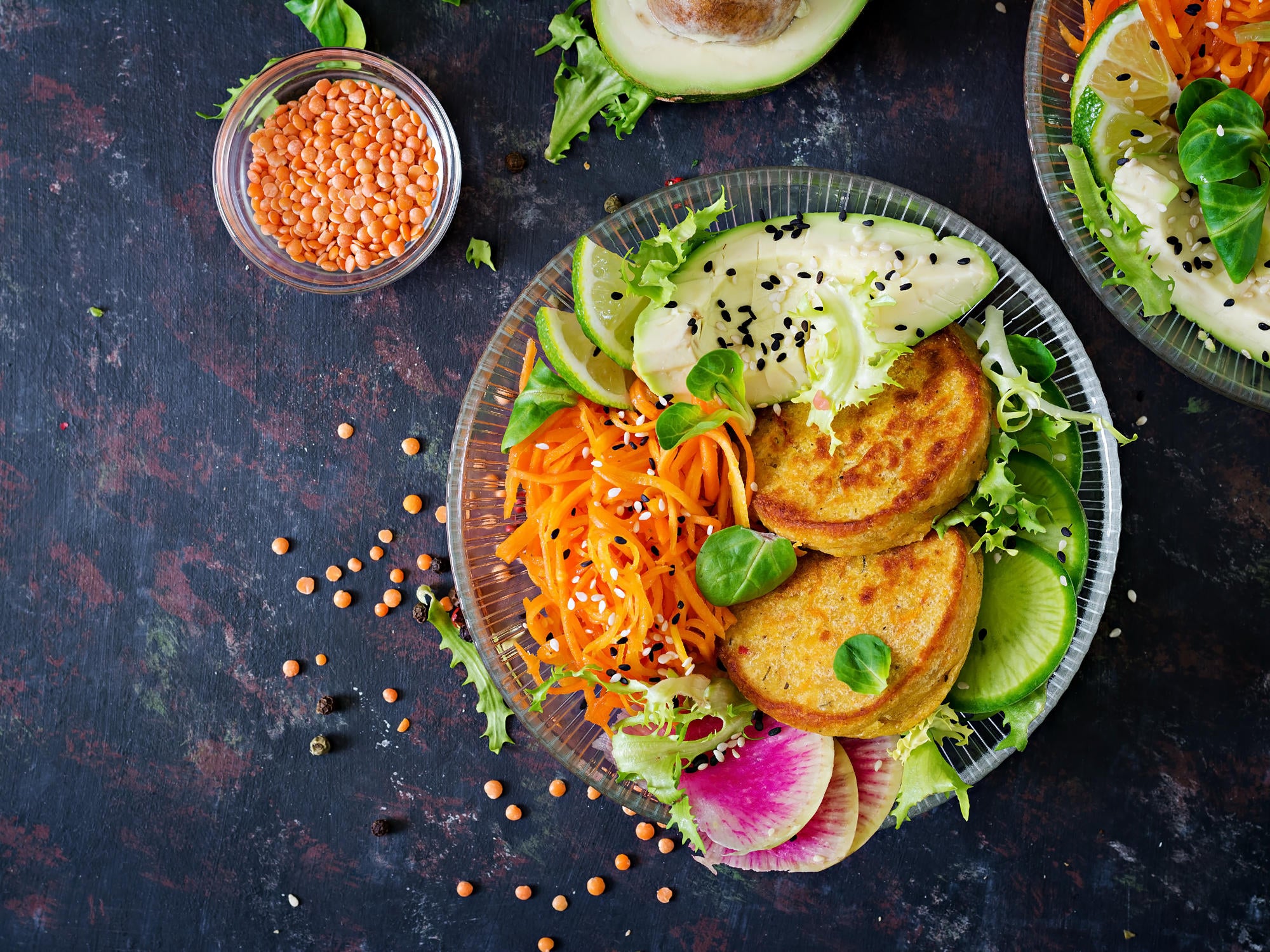Your basket is empty
Already have an account? Log in to check out faster.
Already have an account? Log in to check out faster.

The vegan diet is a dietary regimen based exclusively on the consumption of plant-based products, excluding all animal-derived or animal-exploited products.
It is not a diet in the most "banal" sense of the term. Instead, it is a conscious and ethical choice, a lifestyle that, when undertaken thoughtfully and convincingly, is rarely abandoned.
Contrary to the belief that the vegan diet is merely a method to detoxify after a period of excess or a way to lose weight, it is a complex and often challenging lifestyle to embrace initially. It requires extensive knowledge of foods, their correct combinations, and a deep understanding of one's own body to avoid energy slumps and nutritional deficiencies.
Recently, we discussed the plant-based diet, which predominantly includes plant-based foods but allows for small amounts of animal proteins like fish or eggs, provided every product is of the highest quality.
For vegans, this is a firm no: no animal-derived food is allowed on the table. Even derivatives like cheese, honey, or eggs are seen as exploitation and mistreatment of animals.
Can one live on plant-based food alone? The answer is yes, as long as one studies to understand the types of micro and macronutrients contained in each food and the best combinations to maximize the intake from each dish.
A common mistake made by many beginners is to start with great enthusiasm, merely substituting the foods from their "omnivorous" diet with equal quantities of plant-based foods to achieve satiety.
However, it is quite evident that the micronutrients in a beef steak with a side of mixed salad cannot be identical to those in a larger portion of the same salad.
Food combinations serve two purposes:
Maximize the assimilation of specific vitamins or minerals.
Aid natural digestion.
Regarding the first point, iron is often a micronutrient lacking in vegan diets. In this case, mixing spinach and red peppers or strawberries and dark chocolate can help absorb more precious iron.
From a digestion perspective, since it is based on the enzymes processing the food, the vegan perspective focuses on not overburdening the enzymes, letting them concentrate on one or two macro categories of food at a time.
There are five broad categories:
Starches, such as carbohydrates like potatoes, cereals, and chestnuts.
Fruits, divided into acidic (like citrus fruits and apples) and sweet (like figs and bananas).
Proteins, like legumes and soy.
Fats, like avocado and nuts.
Vegetables, all non-starchy vegetables.
While vegetables can be combined with all, mixing starches and proteins or acidic and sweet fruits can slow digestion and cause bloating.
Among the pros, there is an excellent intake of all nutrients typical of vegetables, such as folic acid, vitamins A and C, and more.
Among the cons, detractors often think of possible deficiencies. However, these deficiencies usually stem from a partial knowledge of foods, their combinations, and a general understanding of what the body needs to stay healthy.
The Ministry of Health in 2015 released a focus on "Nutritional Equilibria of a Healthy Diet," stating that with the right knowledge and the help of a nutritionist, a vegan diet can be balanced and suitable to meet individual nutritional needs. A diet—derived from the Greek "diaita," meaning "way of life"—is considered healthy if it maintains an adequate body weight and prevents diseases while enabling the body to perform daily activities like studying, working, and exercising.
A typical deficiency is vitamin B12, as it is usually present only in animal products. This is why many vegans need to supplement with specific integrators or superfoods like spirulina, a consumable algae naturally rich in B12.
Conversely, no one thinks a poorly managed vegan diet can cause weight gain, but it can! Beginners often assume that since plant-based foods are generally "lighter," they can overindulge. This is incorrect: while healthy, the good fats from avocado and nuts are still lipids and can lead to excess weight, as can sugars and carbohydrates.
When thinking of veganism, diet is the first thing that comes to mind. However, it is an ethical choice that also involves environmental and animal welfare.
Those adopting a vegan lifestyle also avoid using polluting products for personal hygiene and household cleaning. They avoid all animal-derived products in clothing—such as leather shoes and accessories—and prefer eco-sustainable and recyclable solutions for all aspects of life, from clothing to home decor.
0 comments